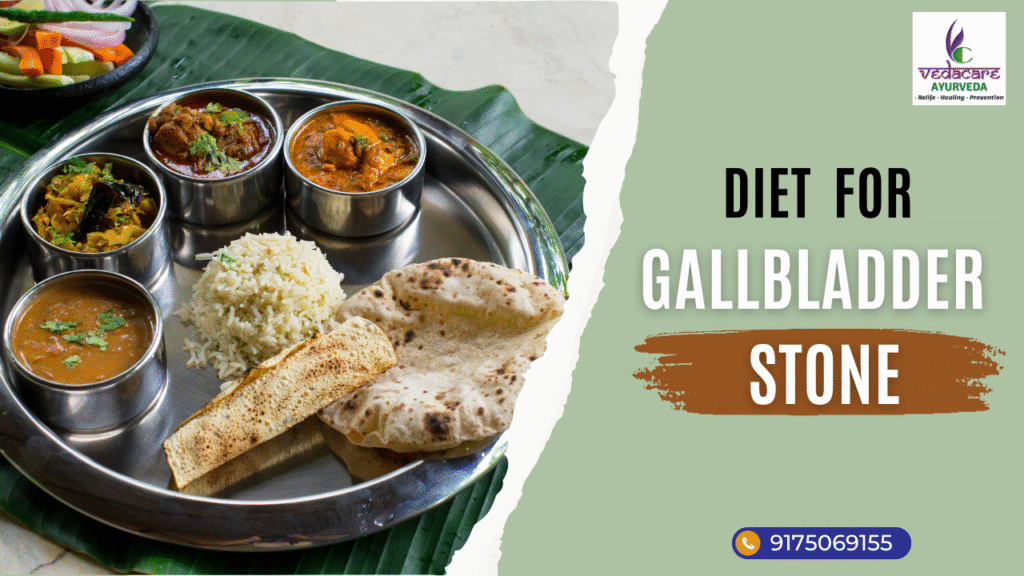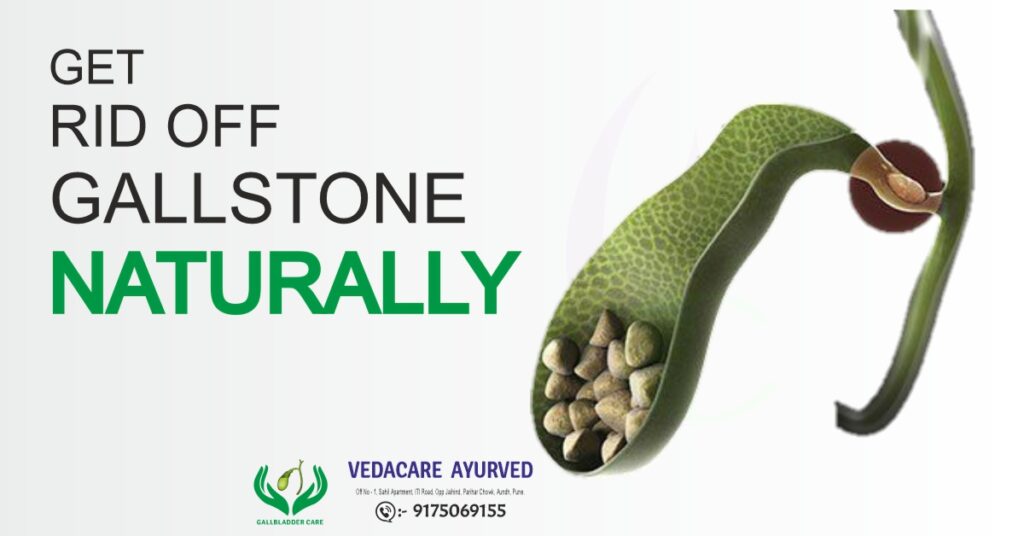Ayurvedic Diet for Gallbladder Stones & Pain Relief
Ayurveda considers food as medicine and believes that a balanced diet is essential for maintaining good health.
Gallstones are a common digestive disorder, affecting millions of people worldwide. The gallbladder is a small organ located beneath the liver, and its primary function is to store and release bile, a fluid that helps digest fats.
Gallstones are hard deposits that form in the gallbladder due to an imbalance of cholesterol, bile salts, and other substances.
While some people may have gallstones without any symptoms, others may experience severe pain, nausea, and vomiting, which can be very discomforting.
In Ayurveda, gallstones are considered a condition of an imbalanced Pitta dosha, and a proper diet can help balance the dosha and prevent the formation of gallstones. Fortunately, there are several dietary changes one can make to prevent and treat gallstones.
In this article, we will discuss the Ayurvedic diet for gallbladder stones.
- Include bitter vegetables: Bitter vegetables such as bitter gourd, arugula, and dandelion greens can help stimulate the liver and promote the flow of bile, which can help prevent the formation of gallstones.
- Avoid spicy and oily food: Spicy and oily food can aggravate the Pitta dosha and increase the risk of gallstones. Therefore, it is recommended to avoid these foods.
- Include pomegranate juice: Pomegranate juice is known to promote digestion and increase the production of bile, which can help prevent the formation of gallstones.
- Include turmeric in your diet: Turmeric has anti-inflammatory and antioxidant properties, which can help reduce inflammation and prevent the formation of gallstones.
- Use ghee instead of oil: Ghee is a clarified butter that is rich in antioxidants and has a cooling effect on the body. It is recommended to use ghee instead of oil for cooking. Although you need to reduce your fat intake, it is important to include healthy fats in your diet, such as monounsaturated and polyunsaturated fats. These fats can be found in foods such as olive oil, avocado, nuts, and fatty fish.
- Include fiber-rich foods: Fiber-rich foods such as whole grains, fruits, and vegetables can help prevent the formation of gallstones. Fiber helps reduce the amount of bile acids in the intestine, which can decrease the risk of gallstones.
- Drink warm water: Drinking warm water can help stimulate the digestive system and promote the flow of bile, which can help prevent the formation of gallstones.
- Avoid fasting: Fasting can increase the risk of gallstones. Therefore, it is recommended to avoid fasting or follow a modified fasting regimen under the guidance of an Ayurvedic practitioner.
- Include digestive spices: Digestive spices such as cumin, coriander, and fennel can help improve digestion and prevent the formation of gallstones.
- Increase fiber intake: A diet high in fiber can help prevent the formation of gallstones. Fiber helps reduce the amount of bile acids in the intestine, which can decrease the risk of gallstones. Foods that are rich in fiber include whole grains, fruits, vegetables, legumes, and nuts.
- Reduce fat intake: Diets that are high in fat can increase the risk of gallstones. Therefore, it is recommended to reduce the intake of saturated and trans fats, which can be found in foods such as red meat, butter, cheese, and fried foods.

- Eat smaller, more timely meals: Eating smaller, timely meals can help stimulate the gallbladder to release bile, which can help prevent the formation of gallstones.
- Avoid rapid weight loss: Rapid weight loss can increase the risk of gallstones. Therefore, it is important to lose weight gradually and maintain a healthy weight. Avoid crash diets and instead aim for gradual, sustainable weight loss through a healthy diet and exercise routine.
- Stay hydrated: Drinking required amount of water can help prevent the formation of gallstones.
- Limit alcohol intake: Alcohol can increase the risk of gallstones. Therefore, it is important to limit your alcohol intake or avoid it altogether.
- Consider magnesium: Magnesium may also help reduce the risk of gallstones. Foods that are high in magnesium include whole grains, nuts, and leafy greens..
- High-fat foods: Eating foods that are high in fat can trigger a gallbladder attack. Limit your intake of fried foods, fatty meats, dairy products, and processed foods.
- Spicy foods: Spicy foods can irritate the gallbladder and cause pain or discomfort. Avoid or limit your intake of hot peppers, chili powder, and other spicy seasonings.
- Dairy products: Some people with gallstones may experience digestive symptoms after consuming dairy products. If you notice that dairy triggers symptoms, consider avoiding or limiting your intake of milk, cheese, and other dairy products.
- Fried and greasy foods: Fried and greasy foods can be difficult to digest and can trigger symptoms. Limit your intake of fried chicken, French fries, and other fried foods.
- Caffeine: It can irritate the gallbladder and trigger an attack. Limit your intake of caffeine, or avoid them altogether.
- Processed foods: Processed foods are often high in salt, sugar, and unhealthy fats. Limit your intake of processed foods and opt for whole, nutrient-dense foods instead.
- Rapid weight loss: Rapid weight loss can be a risk factor for the development of gallbladder stones. When a person loses weight quickly, their liver secretes more cholesterol into the bile, which can lead to the formation of gallstones. Additionally, when a person loses weight quickly, their gallbladder does not contract as frequently, which can lead to the accumulation of bile and the formation of gallstones. Losing weight quickly can be challenging, especially if you are trying to do it in a healthy way that does not compromise your overall health. However, for people with gallbladder stones, rapid weight loss can be even more challenging, as it can trigger painful symptoms and complications
- Walking: Going for a brisk walk is a simple and effective way to get some exercise and improve overall health. Aim to walk for at least 30 minutes per day, most days of the week.
- Yoga and stretching: Practicing yoga or stretching exercises can help to improve flexibility and reduce stress, which can be beneficial for managing gallstone symptoms.
- Consult an Ayurvedic practitioner: If you have been diagnosed with gallstones or are at risk of developing them, it is important to consult an Ayurvedic practitioner. They can provide you with personalized dietary recommendations and treatment options
Ayurvedic diet for gallbladder stones focuses on balancing the Pitta dosha and promoting the flow of bile.
Ayurvedic Treatment for Gallbladder Stone-Pittashay Khade – पित्ताशय की पथरी
It is important to consult an Ayurvedic practitioner for personalized dietary recommendations and treatment options.

